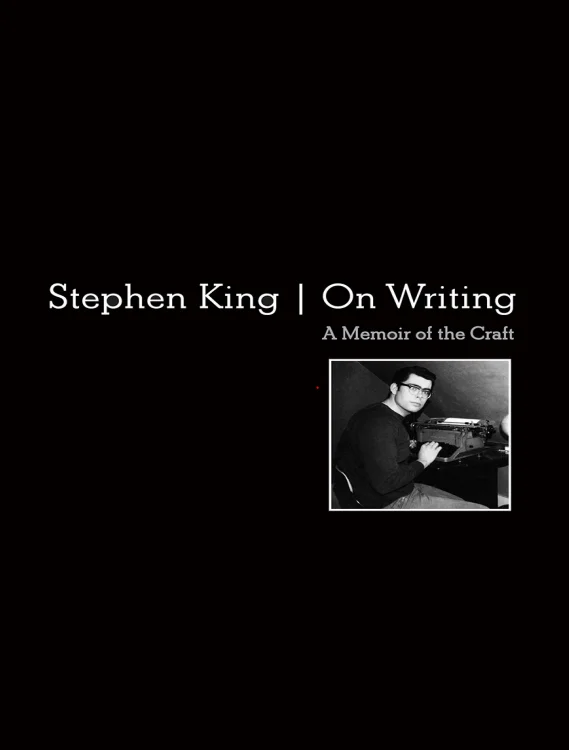
Writing isn’t about making money, getting famous, getting dates, getting laid, or making friends. In the end, it’s about enriching the lives of those who will read your work, and enriching your own life, as well. It’s about getting up, getting well, and getting over. Getting happy, okay? Getting happy. Some of this book—perhaps too much—has been about how I learned to do it. Much of it has been about how you can do it better.
Short Summary:
“On Writing: A Memoir of the Craft” is Stephen King’s part memoir, part master class on the craft of writing, published in 2000. The book is divided into several sections that blend autobiography with practical writing advice.
King begins with “C.V.” (Curriculum Vitae), a series of memories and formative experiences that shaped his development as a writer. He recounts his childhood in Maine and Connecticut, his early fascination with horror films and comic books, and his first attempts at writing fiction. King describes how his mother encouraged his writing by paying him a quarter for each story he wrote, and how he faced rejection after rejection when submitting to magazines before finally selling his first professional story to a men’s magazine.
The memoir continues through his college years at the University of Maine, his marriage to Tabitha Spruce, and his struggles as a high school English teacher while trying to write in his spare time. King candidly discusses his battles with alcoholism and drug addiction that coincided with his early success as a novelist, following the publication of “Carrie” and “Salem’s Lot.”
In the middle section, King offers a brief interlude called “What Writing Is,” where he describes writing as telepathy—a direct mind-to-mind connection between writer and reader across time and space.
The core instructional part of the book, “On Writing,” delivers King’s practical advice for aspiring writers. He advocates for reading voraciously, writing regularly, and focusing on honest storytelling over plot outlines. King reveals his personal writing routine—typically 2,000 words a day, every day, including holidays. He offers specific guidance on dialogue, description, research, and revision, emphasizing his belief that “the story is boss” and should dictate where the writing goes rather than forcing characters into predetermined plots.
King provides straightforward guidelines on grammar, vocabulary, and editing, famously advising writers to “kill your darlings” (remove unnecessary passages no matter how much you love them) and to cut at least 10% of their first draft’s word count. He compares writing to excavation, where the writer’s job is to uncover the fossil (story) that already exists rather than constructing it piece by piece.
The final section, “On Living,” describes King’s near-fatal accident in 1999 when he was struck by a van while walking along a Maine road. He details his extensive injuries, painful recovery, and how returning to writing became essential to his healing process. In fact, “On Writing” was the first book he completed after the accident.
Throughout the book, King balances authoritative instruction with humility, suggesting that while he can offer tools and techniques, ultimately each writer must find their own path. The book concludes with a marked-up example of revision, showing how King edits his own work, and a recommended reading list of books that have influenced him.
“On Writing” stands as both an illuminating autobiography of one of America’s most successful authors and a practical toolkit for anyone serious about improving their writing.